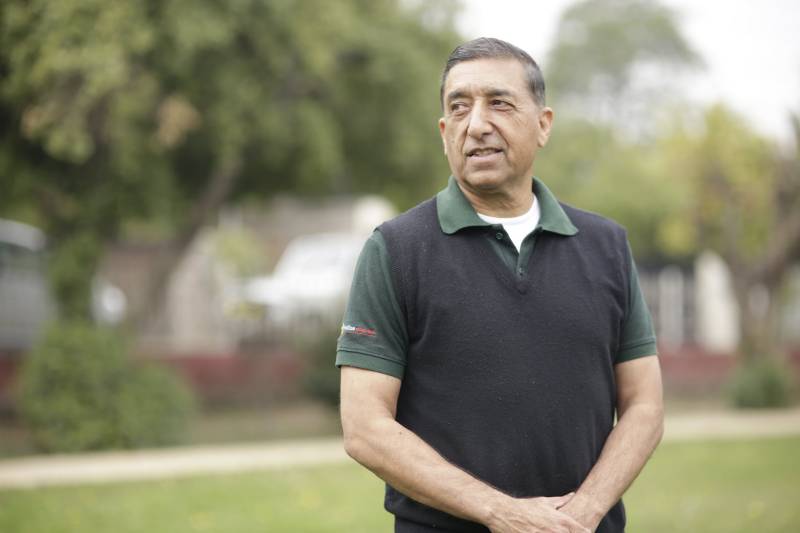
On September 21 2022, just a couple of days after the National T20 tournament had ended, the Multan International Cricket Stadium played host to another game of cricket. This was no ordinary game and not just because it was named after no ordinary man; this game was a first in the history of Pakistan's near 70 year old cricketing history. Club cricket is the heartbeat of our favourite sport, it is clubs that nurture and produce the players who go on to become national and international players.
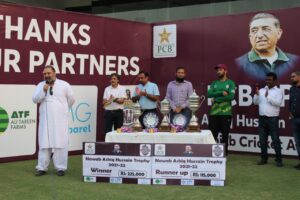 The Nawab Ashiq Hussain Challenger Trophy marked the first time that a regional club champion was decided, with most trophies limited to city and at best district level. 1000 teams across 4 divisions of South Punjab played for the right to be the champions of this historic event and the final saw a David v Goliath battle between City Gymkhana Cricket Club from Muzaffargarh and Multan's famed Crescent Cricket Club.
The Nawab Ashiq Hussain Challenger Trophy marked the first time that a regional club champion was decided, with most trophies limited to city and at best district level. 1000 teams across 4 divisions of South Punjab played for the right to be the champions of this historic event and the final saw a David v Goliath battle between City Gymkhana Cricket Club from Muzaffargarh and Multan's famed Crescent Cricket Club.
Despite the presence of an International cricketer and PSL star in their ranks Multan's Crescent lost to the unfancied City Gymkhana from Muzzaffargarh, proving once again that the beauty of cricket lies in its unpredictability. It was a fitting tribute that would have had the seal of approval from the trophy's eponymous hero who always fought for the rights of club cricketer's across the land.
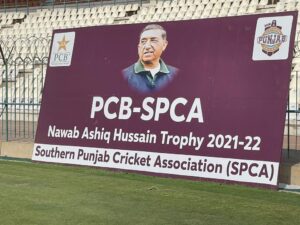
Nawab Ashiq Hussain Qureshi was born into one of Multan's most respected families of landed gentry with strong spiritual ties to the city of saints. The eldest child of Nawab Sadiq Hussain Qureshi, who would serve as both Governor and Chief Minister of Punjab, and Begum Haseen Bano Qureshi whose maternal family produced two test cricketers and captains of India in Nawab Iftikhar Ali Khan Pataudi, her maternal uncle, and Nawab Mansur Ali Khan Pataudi, her first cousin.
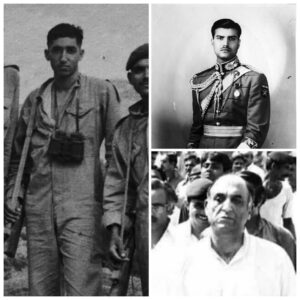
Educated at Aitchison College in Lahore and La Salle Higher Secondary School in Multan, Ashiq was a champion athlete who held school, university and national records in as many as eight athletic disciplines and received awards as the best athlete at all age groups.
After completing his schooling he joined the Pakistan Military Academy at Kakul, graduating to become an officer in the armoured corps. He always maintained that the discipline he learnt in the army was the greatest gift he had ever received, always living his life with focus and punctuality. He moved into the foreign service after his military career, serving in both Paris and London where he famously set up the Embassy's cricket team.
A former national under 19 player, he impressed with his pace against the visiting England under 19 team in 1969 and later played a first class match for Pakistan railways.
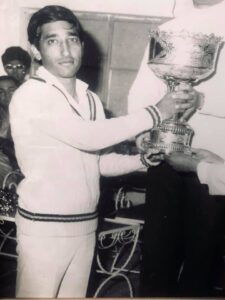
At club level he captained his Pepsi Cola club side, filled with current and future cricketing stars, to 14 wins in 18 years (they finished runners up the other four times) and his P&T Gymkhana side have produced as many as four international umpires including the hugely respected Aleem Dar.
His home in Lahore's Upper Mall was nicknamed the trophy factory with literally hundreds of trophies dotting the landscape, some even used as flower pots!
He served as France's Consul General in Lahore for decades, being awarded the Chevalier de la Legion D'Honneur for his services. The pioneer of veteran's cricket in Pakistan he served as CEO and later managed the side that would reach the final of the over 50's World Cup in Australia.
A kind and pious man who worked tirelessly for the rights of others, something I found out about when the presidents of both clubs in the final spoke of the work he had done for them, from bringing national stars to Multan to arranging equipment for Muzaffargarh's ground that was still being used today.
My own journey in cricket has seen anyone who sees my last name come up and ask me if I am related to him then regale me with stories of what he did for them and their city, stories repeated to me by former international players, coaches and administrators from Lahore to Larkana and Gwadar to Gilgit.
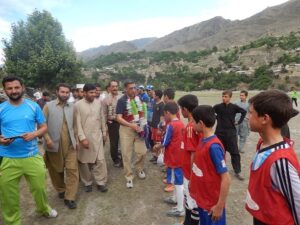
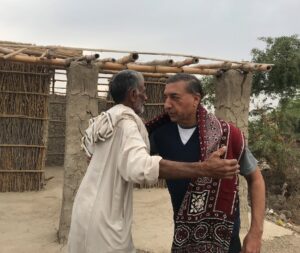
As the winning runs were hit to end a tense final in the glorious late summer sunshine of Multan the families and friends of both sides ran onto the field to celebrate or condole with the players. After the match both sides were presented with excellent cricket equipment made possible by generous donations spearheaded by Mr. Mujahid Hamid, one of Nawab Ashiq's closest friends, and the Qureshi family. The post match presentation saw speeches in honour of Nawab Ashiq Hussain Qureshi by Dr. Abdul Saboor (CEO SPCA), World Cup winner Wasim Haider (Head coach at the High Performance Centre of Multan), and the presidents of both clubs who spoke of the work he had done for them, from bringing national stars to Multan to arranging equipment for Muzaffargarh's ground that was still being used today.
The Nawab Ashiq Hussain Challenge Trophy was the brainchild of SPCA Chairman Muhamman Anees Khwaja and CEO Dr. Abdul Saboor, himself a former first class and veterans cricketer who had played with the late Nawab Ashiq. It was their stellar efforts alongside help from SPCA board members Mr. Ali Khan Tareen, Barrister Taimur Malik and the wonderful team at SPCA that allowed Multan to pay homage to one of her finest sons; For their support and kindness my family and I are forever indebted to them. It was a fitting way to pay homage to a legacy of selflessness, tireless devotion and consummate passion that best summed up Nawab Ashiq Hussain Qureshi.
Photos by: Nawab Hassan Hussain Qureshi and https://www.facebook.com/ashiqhqureshi

